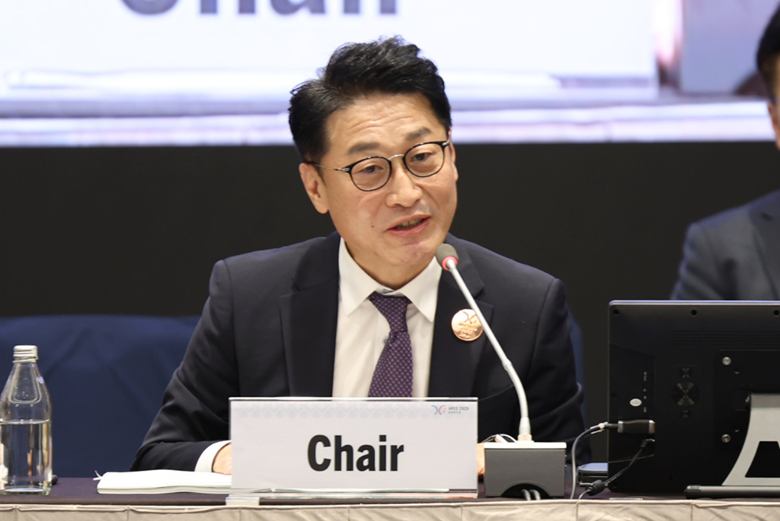
Energy ministers from across the Asia-Pacific gathered in Busan this week for the 15th APEC Energy Ministerial Meeting, charting a collective course to secure stable electricity supply, modernize regional grids and harness artificial intelligence for innovation in energy systems.
Meeting against the backdrop of surging electricity demand, accelerating electrification and mounting climate pressures, ministers underscored the urgency of building resilient, diversified and technologically advanced energy networks that can deliver energy security and sustainability for the region.
Chairing the meeting, Hohyeon Lee, Vice Minister for Energy at the Ministry of Trade, Industry and Energy of the Republic of Korea, stressed the stakes. "Korea is committed to achieving balance in its energy sector," Vice Minister Lee said.
Highlighting this priority, Vice Minister Lee said that Korea is committed to building out its grid and advancing diverse energy technologies to meet surging electricity demand, strengthening energy resilience and reliability through an "energy highway" and expanded storage, and developing artificial intelligence-enabled microgrids to improve grid management.
"This meeting offers a vital opportunity to reflect on and advance our energy strategies, and I look forward to engaging in meaningful discussions centered on APEC energy cooperation and the three key topics we have outlined."
Ministers built on this discussion by identifying three regional priorities: scaling electricity supply, reinforcing grid security, and tapping AI to optimize energy systems. They emphasized the need for stronger investment, cross-border cooperation, and shared standards to deliver reliable, future-ready energy networks.
"In a time of global economic and geopolitical uncertainty, ensuring sustainable and innovative energy systems is a pressing priority for all economies," said Eduardo Pedrosa, Executive Director of the APEC Secretariat in his remarks at the meeting.
"With the rapid advancement of artificial intelligence, the need for resilient, intelligent, and adaptive energy infrastructure is greater than ever. APEC, as an incubator of ideas, is uniquely placed to support economies in meeting these challenges," added Pedrosa.
Busan itself provided a fitting backdrop to the discussions, with its offshore wind projects and eco-friendly data centers exemplifying the integration of digital technology and renewable energy. Korea showcased its plans to expand national grid capacity, build a next-generation "energy highway," and deploy AI-enabled microgrids, demonstrating how economies can combine innovation with long-term energy security.
"By convening in Busan, we reaffirm our shared vision of unlocking new possibilities in the energy sector. The challenges we encounter inspire us to unite and collaborate," Vice Minister Lee said. "Today's discussions are crucial as we strive to find impactful solutions and ignite change."
Ministers also heard from the private sector and international partners including the World Bank and International Energy Agency, who shared insights on scaling investment and accelerating deployment of smart technologies-important inputs to the APEC process. Ministers underscored the need for cross-sector collaboration to ensure that digital transformation supports, not undermines, energy security and resilience.






